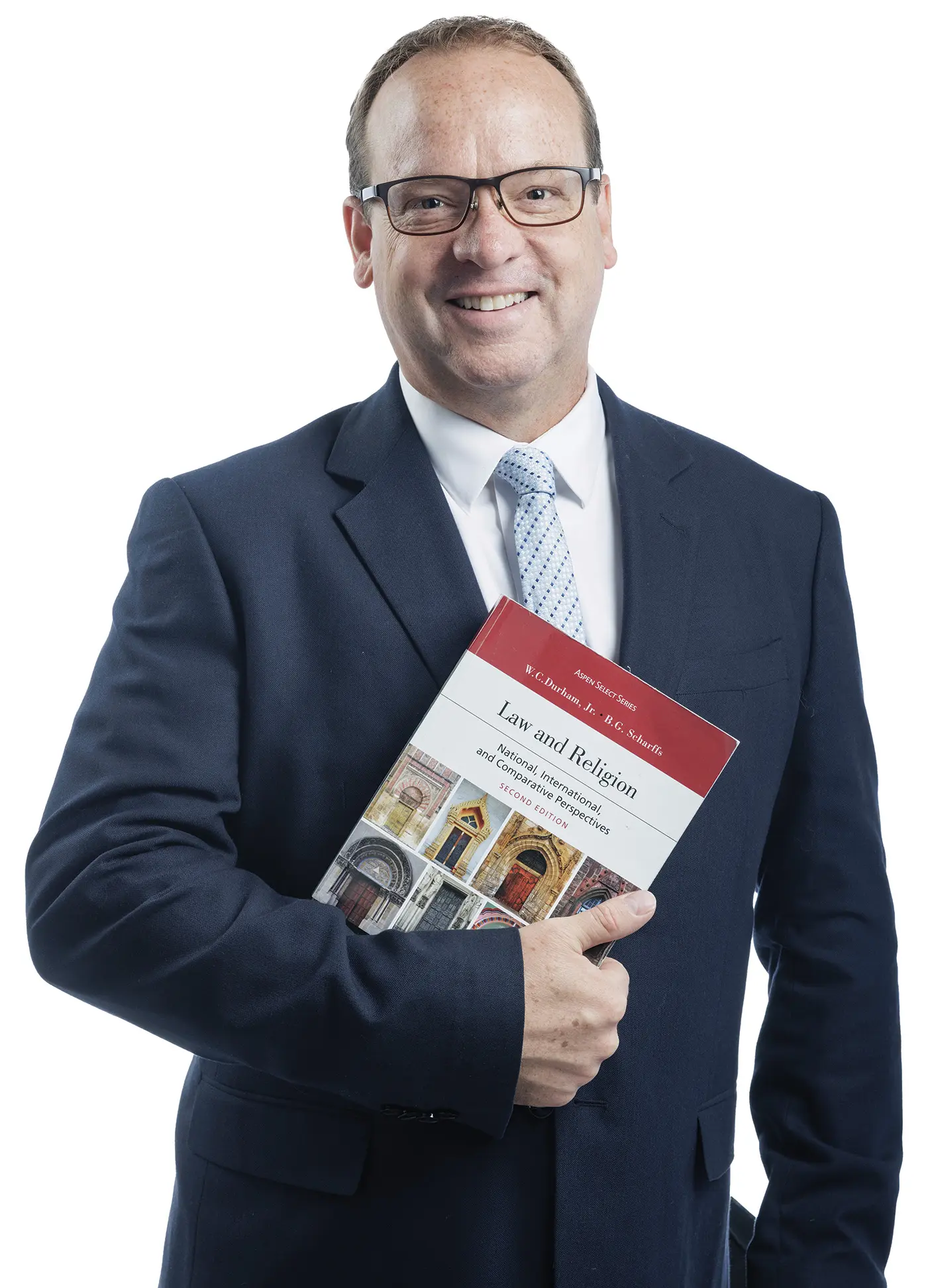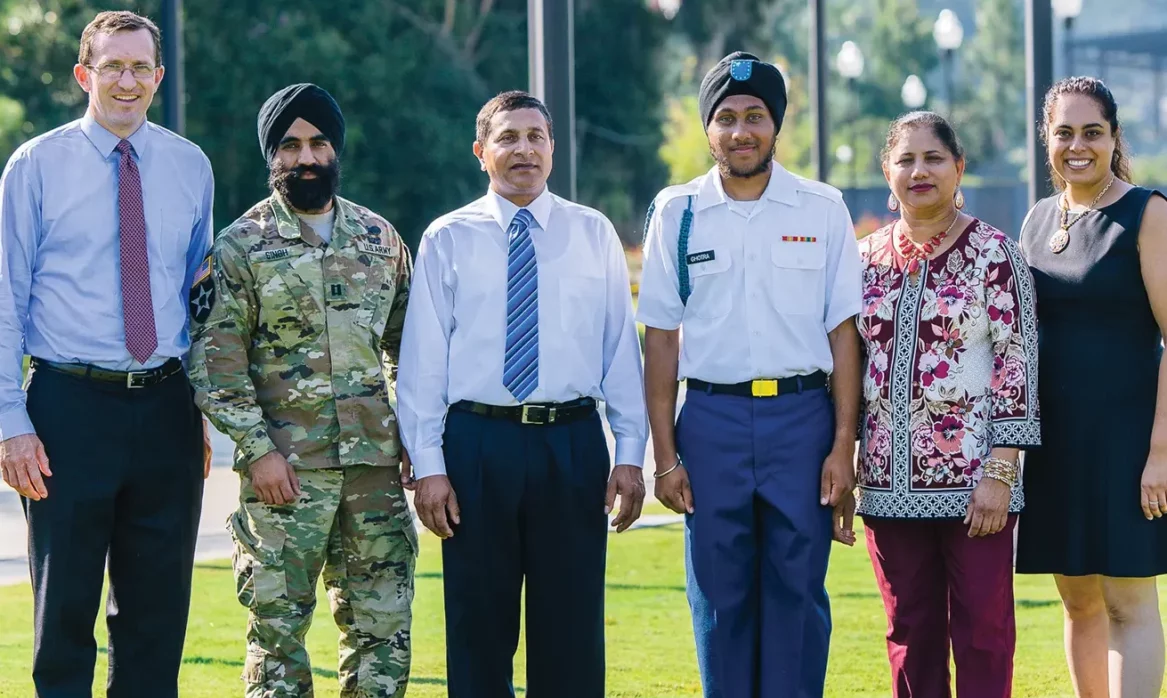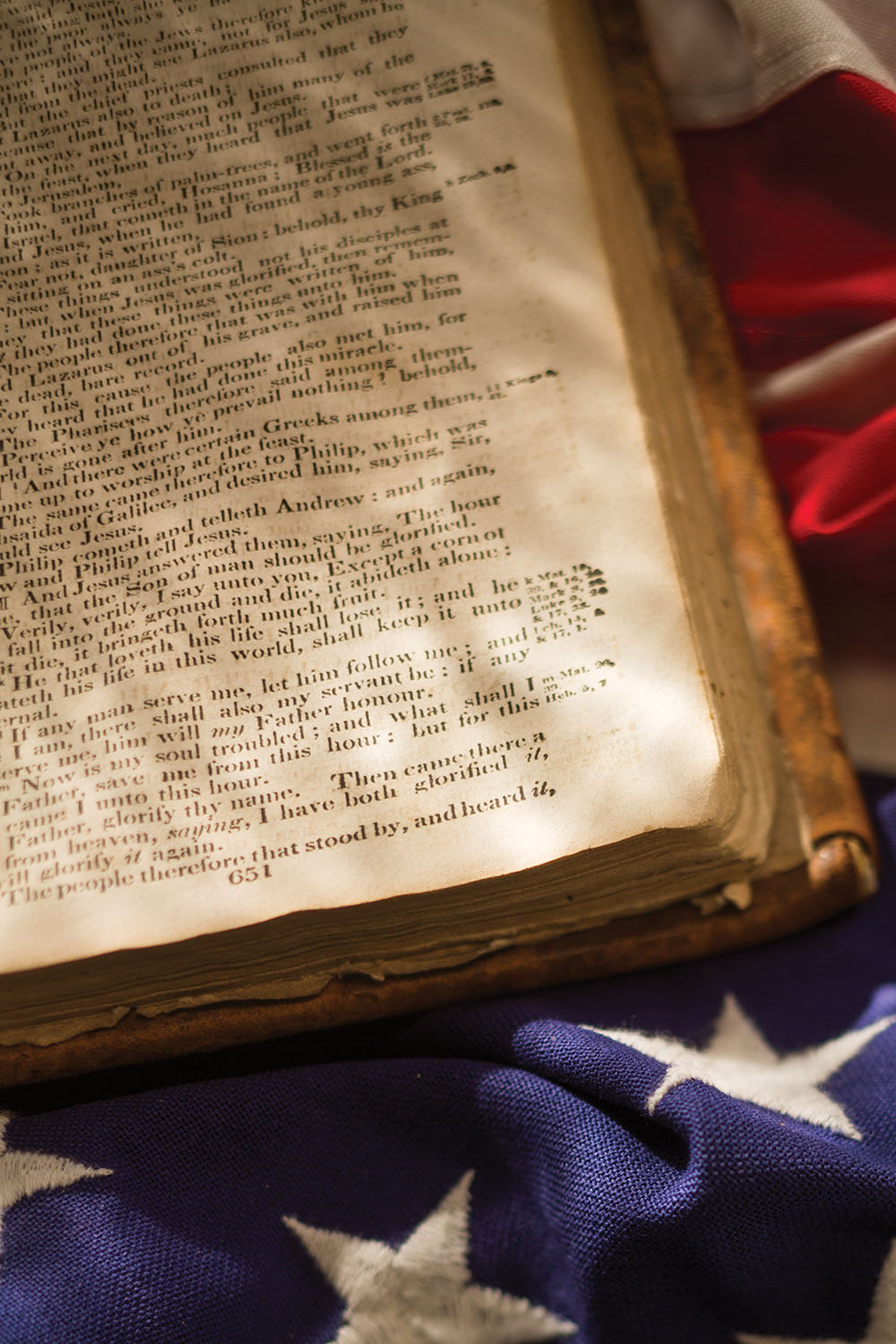With public opinion on religion growing more negative in some corners, concerns about religious liberty are rising. What can the average believer do about it? David H. Moore (BA ’92, JD ’96), new Law School dean and former associate director of BYU’s Center for International Law and Religious Studies, weighs in.
How do you define religious liberty?

A: It’s the right of all people to choose what to believe and to live according to those beliefs. Religious liberty is a human right. That right is foundational but not unlimited. For example, religious freedom might be restricted to avoid a situation in which one person’s belief-based actions infringe on the human rights of others. But limitations should be as rare and as non-restrictive as possible.
Why is religious freedom important for everyone, including those who aren’t religious?
A: Freedom of belief is a human right. If religion is excluded from the beliefs that are protected, then the risk is that any belief can be excluded or controlled. Most people in the world have a religious affiliation, but many don’t. Protecting freedom of religion or belief means all may choose their beliefs, whether religious or not.
What threats to religious liberty do we face today?
A: One of the most severe threats worldwide is persecution of religious minorities by majority groups. Some nations impose stringent laws, making it difficult for certain faiths to be recognized or to practice their faith. In the United States perhaps the most troubling threat is a growing sense that religion is not a public good—that it does not contribute to society but instead provides a cover for bigotry and discrimination. The more this belief takes hold, the more precarious religious freedom protections will become.
What can the average person do to protect religious liberty?
A: Be willing to get involved—vote, attend meetings, engage on social media, and make your voice heard. Establish relationships with people of other religions (and even with people who might be antagonistic to religion) through interfaith and community service projects and personal, peaceful conversations. Practice your faith sincerely so others can see its positive effect on your life and on society. And in all these efforts, act with civility and respect. Our goal is to preserve fairness for all, not just for us.












